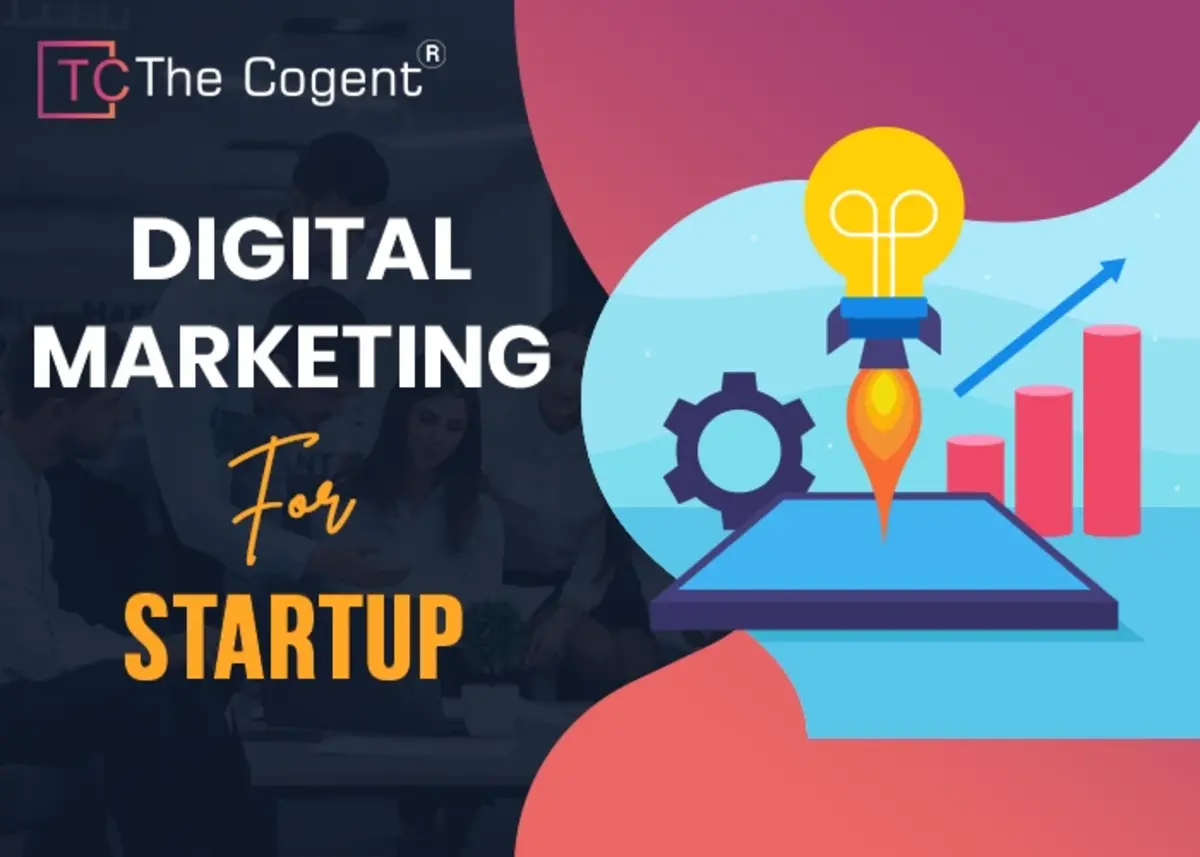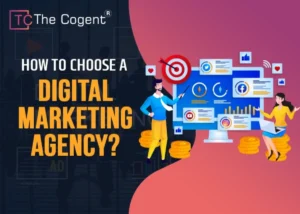Digital marketing for startups in the modern business landscape is indispensable. It involves creating a search-engine-optimized website, producing valuable content, engaging with audiences on social media, and employing email marketing and pay-per-click advertising. Collaborating with influencers can boost brand visibility.
Regular data analysis helps refine strategies, while adherence to privacy regulations is essential. Startups must allocate their budgets judiciously and remain adaptable in the face of evolving digital trends. Effective digital marketing can be a game-changer, propelling startups to success in the highly competitive online arena.
Table of Contents10 Ways to Leverage Digital Marketing for Startups in 2024
- Define Your Goals and Target Audience
- Conduct Market Research
- Develop a Digital Marketing Strategy
- Build a User-Friendly Website
- Establish a Strong Presence on-Social-Media
- Start advertising on Google and Facebook
- Engage with Your Audience
- Implement SEO Strategies
- Measure ROI and Adjust
- Scale and Expand
10 Ways to Leverage Digital Marketing for Startups in 2024
These strategies are applied by a digital marketing company in Jaipur, with the help of these 10 digital marketing strategies for startups you can make your online visibility high on Google.
1. Define Your Goals and Target Audience
Defining clear goals and pinpointing a specific target audience is the foundation of successful digital marketing for startups. Start by articulating what you aim to achieve, whether it’s increasing website traffic, boosting sales, or enhancing brand awareness. Equally crucial is understanding your target audience—demographics, interests, pain points, and online behaviour.
This knowledge shapes your content and channel choices. Tailoring strategies to meet your audience’s needs is key. Whether you’re targeting millennials seeking eco-friendly products or professionals searching for time-saving tools, a well-defined audience ensures your digital marketing efforts are precise, relevant, and yield optimal results for your startup.
2. Conduct Market Research
Market research is the cornerstone of effective digital marketing for startups. To craft a successful strategy, it’s vital to understand your target audience, their preferences, and pain points. This involves analysing competitors, studying industry trends, and gathering data on customer behaviour.
Tools like surveys, social media insights, and keyword research help in uncovering valuable insights. By delving into market research, startups can identify gaps, pinpoint opportunities, and refine their digital marketing efforts. This data-driven approach ensures that resources are allocated efficiently, content is tailored to audience needs, and campaigns resonate with the intended market, giving startups a competitive edge in the digital realm.
3. Develop a Digital Marketing Strategy
Developing a robust digital marketing strategy for startups is critical for startups to navigate the online landscape effectively. It begins with a clear definition of goals, such as brand awareness, lead generation, or sales growth. In-depth market research helps in understanding the target audience and competition.
Choosing the right digital channels, whether it’s social media, email marketing, content creation, or paid advertising, is vital. Content should be engaging and tailored to the audience’s needs and preferences. A well-defined budget, regular performance analysis, and adaptability are essential elements.
An effective digital marketing strategy not only amplifies a startup’s online presence but also cultivates a loyal customer base and fosters growth in the competitive digital marketplace.
4. Build a User-Friendly Website
Building a user-friendly website is a crucial aspect of web development. To achieve this, it’s imperative to focus on intuitive navigation, responsive design, and engaging content. Prioritize a clean and organized layout, ensuring that users can easily find the information they seek.
Implementing clear, concise call-to-action buttons and optimizing page load times enhances the user experience. Responsive design ensures the site looks and functions well on various devices. Additionally, user feedback and usability testing are essential for continuous improvement.
By crafting a website with the user in mind, you create an inviting online space that not only attracts visitors but keeps them engaged and satisfied.
5. Establish a Strong Presence on Social Media
In digital marketing for startups, Establishing a robust presence on social media is paramount in today’s digital landscape. It requires a strategic approach that encompasses regular and engaging content sharing, active audience interaction, and consistent branding. A well-defined social media strategy should align with your business goals and target audience.
Regular posting and maintaining a content calendar are crucial to keep your audience engaged. Actively responding to comments and messages fosters a sense of community and trust. Consistency in branding, tone, and messaging across platforms helps in brand recognition. By investing in social media, businesses can expand their reach, foster brand loyalty, and stay relevant in an ever-evolving online world.
6. Start advertising on Google and Facebook
Embarking on advertising campaigns on Google and Facebook is a strategic move for businesses aiming to reach a broader audience and increase brand visibility. Google Ads allows precise targeting, ensuring ads are shown to users actively searching for related products or services. On the other hand, Facebook Ads leverages extensive user data for targeting, allowing businesses to reach specific demographics and interests.
Both platforms offer various ad formats, including text, display, and video, enabling creativity in campaigns. Effective keyword research and compelling ad content are key to success. By advertising on Google and Facebook, businesses can tap into vast online audiences, drive website traffic
7. Engage with Your Audience
Engaging with your audience is a cornerstone of building meaningful relationships and fostering brand loyalty. Interacting with your audience on social media, responding to comments and messages promptly, and encouraging dialogue show that you value their input. Content that resonates, educates, or entertains keeps their interest piqued.
Surveys, polls, and feedback mechanisms demonstrate a commitment to improvement based on their preferences. Personalization and addressing their needs directly create a sense of connection. By actively engaging with your audience, you not only maintain their interest but also gain valuable insights, ultimately leading to a more loyal, satisfied, and involved customer base that can drive business growth and success.
8. Implement SEO Strategies
In digital marketing for startups, Implementing SEO (Search Engine Optimization) strategies is vital for enhancing online visibility and attracting organic traffic to your website. It involves optimizing your content, meta tags, and website structure to rank higher in search engine results. Keyword research helps identify the terms and phrases your target audience uses, which can be strategically incorporated into your content.
Quality backlinks and a user-friendly website design also play crucial roles. Regularly updating and maintaining your site keeps it relevant to search engines. SEO is an ongoing effort, to align your web presence with search engine algorithms, resulting in increased visibility, more website visitors, and improved chances of reaching and converting potential customers.
9. Measure ROI and Adjust
For startups navigating the digital marketing landscape, measuring ROI (Return on Investment) is paramount. In a world where every penny counts, understanding the effectiveness of marketing efforts is essential. By tracking key performance indicators (KPIs), such as website traffic, conversion rates, and customer acquisition costs, startups can quantify their marketing impact.
This data-driven approach enables them to adjust their strategies on the fly, reallocating resources to channels and campaigns that deliver the best results. Startups must remain agile, adapting to changing market dynamics and consumer behaviour to optimize their digital marketing efforts for maximum ROI and sustainable growth.
10. Scale and Expand
Last but not least step of digital marketing for startups includes scaling and expanding in the realm of digital marketing is a pivotal phase for startups. As these fledgling businesses establish their online presence, the next crucial step is to broaden their reach and impact. This involves diversifying marketing channels, exploring new platforms, and fine-tuning their messaging to resonate with a wider audience.
Additionally, investing in data analytics and automation tools becomes imperative, allowing startups to efficiently manage larger campaigns and audience segments. Collaboration and partnerships with influencers or complementary brands can also facilitate expansion.
Conclusion
The bottom line for startups in the realm of digital marketing is clear: it’s not a luxury but a necessity. By strategically investing in digital strategies, they can efficiently reach and engage their audience, measure ROI, and adapt to ever-changing market dynamics.
Embracing the digital landscape offers startups a competitive edge, paving the way for growth and long-term success in the modern business arena. In essence, digital marketing isn’t an option – it’s the foundation for startup survival and prosperity.



